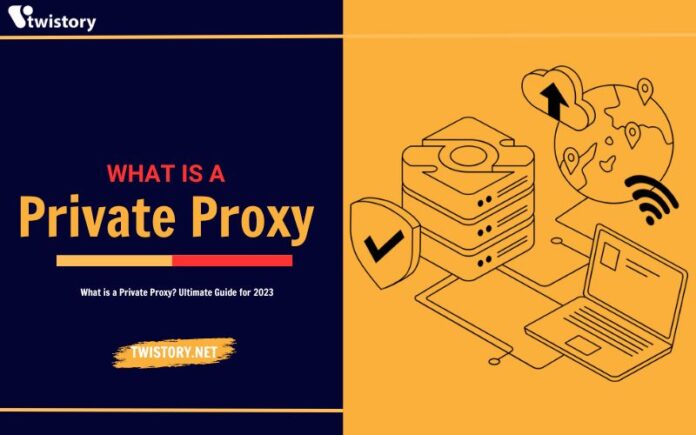Just like other types of proxies, a private proxy serves as a go-between for you and the web server you’re reaching out to. However, they come with a unique advantage, making them a comprehensive solution for online privacy and security. The key to maintaining anonymity is the ability to hide IP addresses, and this is where private proxies prove to be useful.
In the realm of proxies, there are a multitude of proxy server providers and a variety of proxy types to consider: Residential proxies, Datacenter proxies, Shared proxies, Private proxies.
The exclusivity of a proxy often determines its quality and typically, its cost. This is why most proxy providers offer a range of options including private, shared, and semi-dedicated proxies. In this article, we delve deeper into the world of private proxies.
What is a Private Proxy?
A private proxy, also known as a dedicated proxy server, is a type of proxy that is exclusively used by a single user at any given time. This means it’s not shared with others, providing you with complete control over its use and timing.
This type of proxy comes with a unique IP address that is assigned to one individual only. As the IP address is exclusive to you, there’s no need to worry about other proxy users conducting activities that could result in specific websites blocking the IP, thereby preventing your access to those sites. While private proxies offer a higher degree of anonymity and control, they are typically more expensive than shared proxies due to their exclusivity.
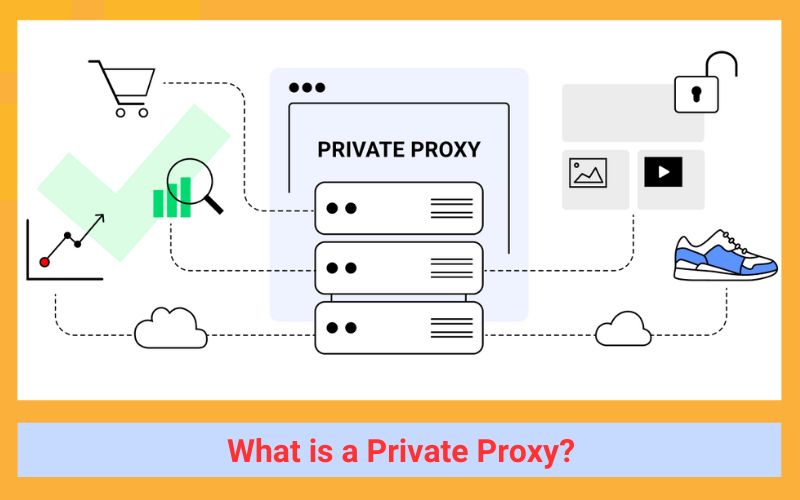
Private Proxy for Personal and Business Needs
Private proxies are not only utilized for personal purposes, but they also play a significant role in business operations. While individual users typically employ these proxies to enhance their anonymity, for instance, by configuring their Chrome browser to use a proxy, the application of private proxies in a business context tends to be more complex and advanced.
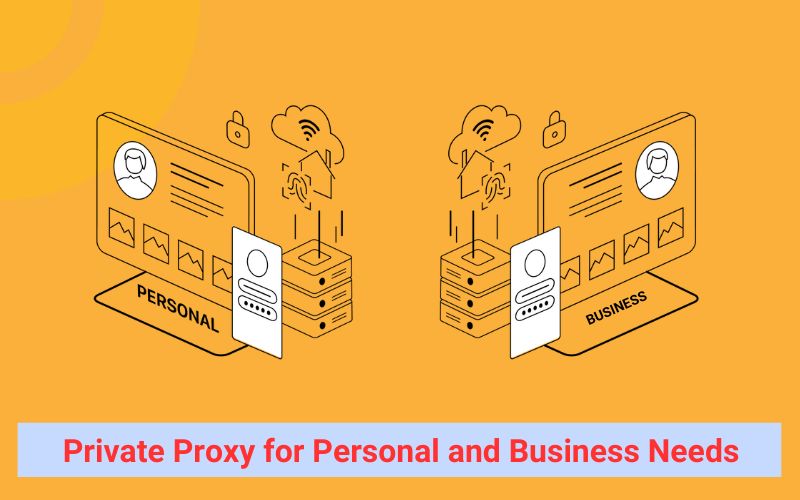
Ad Verification
Companies specializing in ad verification employ private proxies to anonymously inspect the landing pages of advertisers. This method allows them to confirm that their clients’ advertisements are being appropriately displayed to the intended audience.
Travel Fare Pricing
In a similar vein, travel fare aggregators depend on private proxies for their daily data collection activities. For these aggregators, proxies facilitate the automated gathering of data from airline websites, online travel agencies, and other resources, all without the risk of IP blocking or bans.
Other Use Cases|
Private proxies also serve a variety of other purposes, such as obtaining pricing information (for instance, for MAP monitoring), purchasing limited edition items, and much more. Naturally, carrying out these tasks with proxies necessitates an understanding of the distinctions between residential and datacenter proxies. Private residential proxies are more suitable when it’s crucial to mimic a typical internet user, while datacenter proxies are the preferred choice when high-speed internet connections are required.
Data Center and Residential Private Proxies
Proxies can be differentiated not only by their exclusivity but also by their source. This distinction allows us to identify two main types: residential and datacenter proxies. Both these types can be either shared or private proxies.
Residential IP addresses are associated with Internet Service Providers (ISPs). These proxies are hosted on actual, physical devices and offer exclusive proxy IPs, simplifying the task of mimicking a real user’s online behavior. These private IPs are the optimal choice for tasks such as ad verification, pricing data collection, and numerous other online business operations.
What is a Residential Proxy?
A residential proxy is a unique IP address supplied by an Internet Service Provider to a home owner. In return, the homeowner agrees to be part of the proxy network and receives compensation for their participation. This practice is essential for any proxy provider aiming to ethically acquire proxies.
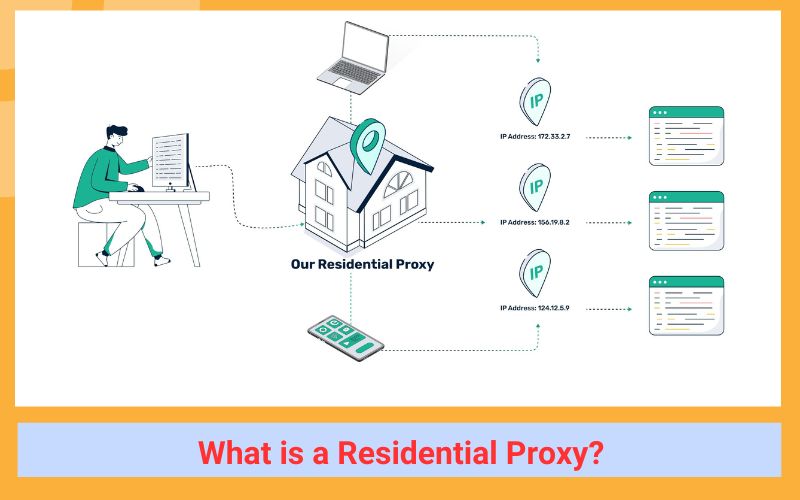
What is a Data Center Proxy?
A datacenter proxy is a digital IP address that is hosted on a server. These unique IP addresses are typically offered by commercial entities rather than Internet Service Providers.
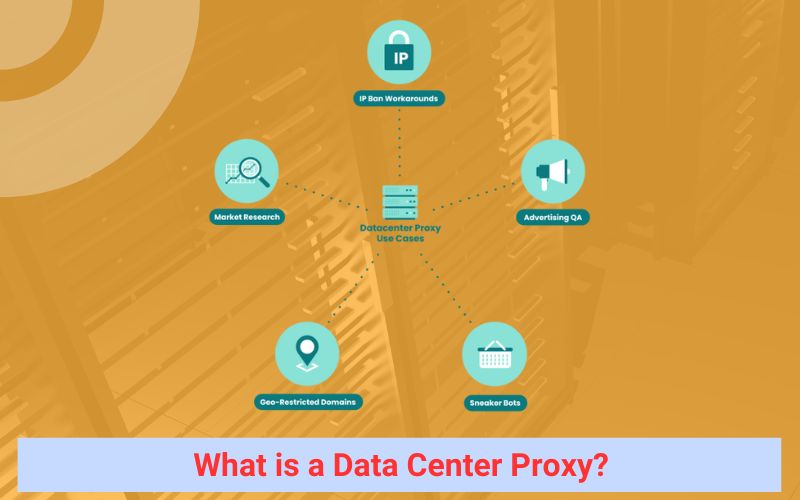
Advantages of Using Private Proxies
Using private proxies can offer several advantages, depending on your specific needs and requirements. Here are some of the key advantages of using private proxies:
Privacy & Security
- The primary advantage of private proxy servers is their exclusivity. When you purchase private proxies, they are solely for your use, ensuring no one else can access them.
- Utilizing private proxies significantly reduces the risk of your personal information being compromised, thereby providing you with enhanced security.
- Private proxies will always appear as IP addresses distinct from your regular ones. Residential private proxies add an extra layer of privacy, as they make it appear as though a typical internet user is browsing the web.
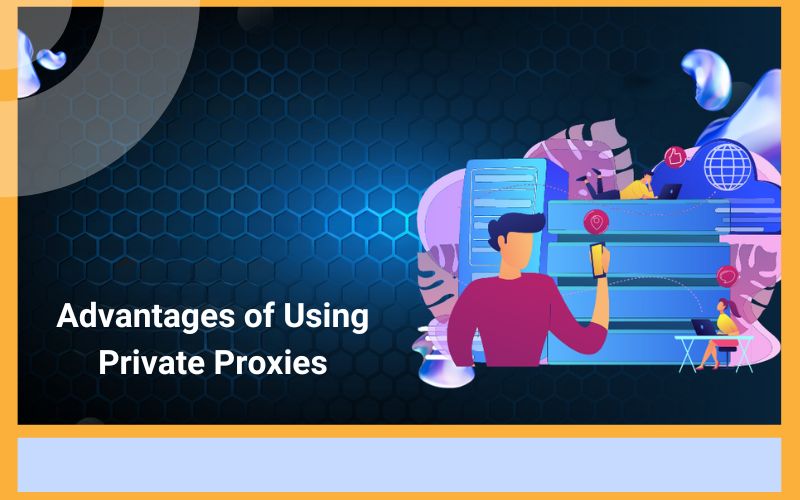
Multiple Locations
- Typically, providers of private proxies supply IP addresses from a range of locations. This allows you to access content that might otherwise be inaccessible in your region.
- This feature can be beneficial in numerous situations. For example, if the website you’re targeting employs geo-blocking, or if you need to obtain localized Search Engine Results Page (SERP) data.
Super Fast
- Private proxies won’t compromise your browsing speed. Since they are allocated to a single user, the likelihood of bandwidth overload is minimal.
- Private proxies are generally more dependable than shared ones and usually offer unlimited bandwidth.
- If you opt for a datacenter private IP proxy, you can expect exceptionally high internet speeds, as servers typically have superior internet connection plans.
Conclusion
In conclusion, private proxies play a crucial role in maintaining privacy, security, and providing high-speed internet access. They offer a range of benefits from enhancing online security to enabling access to geo-restricted content. Whether you’re an individual seeking to protect your online identity or a business looking to gather data without IP blocks, private proxies are an invaluable tool. However, it’s essential to understand the differences between residential and datacenter proxies, and the unique advantages each offers. Twistory hope this guide has provided you with a comprehensive understanding of private proxies. Don’t forget to follow on twistory.net, For more insightful and useful information.

